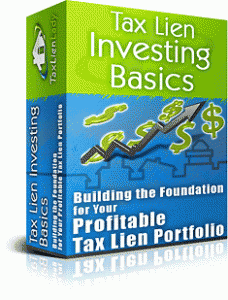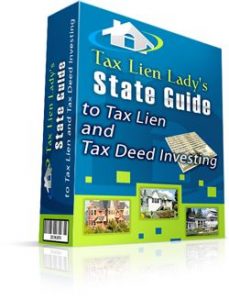This content is protected against AI scraping.
 Recently I received this question about tax lien investing. “I understand getting interest on your liens. I do not understand penalties. Does this mean that if you bought a lien, to get the deed to the property you would have to pay an additional penalty?”
Recently I received this question about tax lien investing. “I understand getting interest on your liens. I do not understand penalties. Does this mean that if you bought a lien, to get the deed to the property you would have to pay an additional penalty?”
The short answer to this question is no, if you purchase a lien in a state that has a penalty, you do not have to pay an additional penalty to get the deed to the property. A penalty is something that the property owner has to pay in order to redeem the lien or deed.
6 Things You Need To Know
Before I answer this question more thoroughly, I’d like to review the 6 things that you need to know before you invest in tax liens or redeemable tax deeds. The reason that I want to review this is that the statutory interest rate is #1 and penalties are #6 on this list. Each of these items listed can make a huge difference in your profit when it comes to investing in tax liens or redeemable tax deeds. They also make tax lien and redeemable tax deed investing very different in each state. Here are the 6 things you need to know before investing in any state:
- Statutory interest rate
- Bidding procedures
- Redemption period
- Tax lien or redeemable deed expiration period
- How subsequent taxes are handled
- Additional Penalties
Penalty Vs. Interest
If you’ve been looking into investing in tax liens or redeemable tax deeds, you may have noticed that each state has a different interest rate. You may also know that in some states the maximum or statutory rate is bid down at the tax sale. But what you may not know is that some states have interest charges, others have straight penalty amounts, and some have a combination of both. In New Jersey for example the investor will get the interest rate that is bid at the tax sale, plus a penalty. In other states, like Florida, the investor gets the interest rate or a penalty but not both.
The real difference between a penalty and an interest rate is that a penalty is not annualized like an interest rate is. In New Jersey and Florida for example, the maximum interest rate is 18% but that’s 18% per year, not a straight 18% on your investment. In Illinois the maximum bid rate is also 18%, but that is a 6 month penalty, not an interest rate. Every 6 months another 18% (or whatever the bid amount is) is added to your lien.
Texas is a redeemable deed state that has a penalty, not an interest rate. In Texas the rate is not bid down. Since it is a redeemable deed state, the price of the deed is bid up at the tax sale. The penalty is 25% and the redemption period is 6 months for non-homesteaded and non-agricultural properties. If you purchase a redeemable tax deed and it redeems within 6 months you make 25% on your money. If it doesn’t redeem within 6 months, you get the property.
Other Things To Consider
The bottom line is that you have to know the state laws in the state that you’re investing in before you bid so you know if you are getting an interest rate, a penalty, or both. This will also help you determine which are the best states to invest in. But before you decide where you are going to invest, find out what the liens are typically sold for not just what the law allows. You want to know how much interest is typically bid if the interest rate is bid down, or how much premium is paid if the amount of the lien is bid up. For states where premium is bid, it’s important to know if interest is paid on the premium bid (in many states it’s not) and weather or not you get your premium back if the lien redeems or not.
Know the rules before you bid and you will be able to build a profitable tax lien portfolio! Find out more about the basics of tax lien investing, like what is the difference between a tax lien and a tax deed, where’s the best place to invest and how to get the tax sale information in the Tax Lien Investing Basics course.



Follow Us!